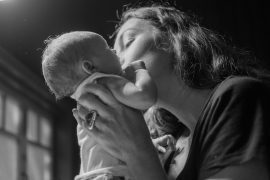This is why acknowledging the prevalence of these thoughts is so important-allowing the creation of a supportive and understanding environment for parents. I wish this information was shared more freely. When new mums join me for therapy, I will remind them: it is the distress caused by scary thoughts that is my concern, not the thoughts themselves. Research indicates that it is the emotional turmoil, guilt, and anxiety stemming from these thoughts that can impact a mother’s well-being, and this is why many mothers choose not to disclose them (myself included). The fear of judgment-am I a good mum? The stigma surrounding mental health issues contributes to the silence of maternal vulnerability. Mums may be apprehensive about being labelled as unfit or incapable, leading them to internalise their fears, racing minds, and scary thoughts.
The pressure to be perceived as a ‘good mum’ and having it all together can be suffocating and discourages open conversations about the challenges that many modern mothers face. This perceived need to maintain a certain image can isolate mothers and deepens their struggles with scary thoughts, leading them to navigate this inner turmoil of motherhood alone. As Karen Klieman from the Postpartum Stress Centre often states, ‘Do not underestimate the enormous power a postpartum woman achieves by maintaining the illusion of control‘.
The pressure to be perceived as a ‘good mum’ and having it all together can be suffocating and discourages open conversations about the challenges that many modern mothers face.
Breaking the silence surrounding scary thoughts is not just personal relief, but I see it as a collective responsibility. By fostering an environment of understanding and acceptance, we can break down the barriers that prevent honest conversations about what’s really happening inside the minds of mothers. Sharing these thoughts diminishes the isolation mothers may feel. Knowing that they are not alone in their struggles can provide solace and help alleviate the burden of guilt and shame that often accompanies scary thoughts. Disclosure also means that mothers seek support from loved ones, friends, or mental health professionals, understanding that seeking help is seen as a sign of strength, not weakness.
During the initial stages of peri-natal therapy, I will often invite the partners or close relatives into sessions so we can have open communication for what’s happening for mum, normalising and sharing what she is experiencing. Letting partners and family into her world so they are able to learn what she needs while she navigates through this inner turmoil.
When we are able to challenge societal norms and the myth of the perfect mother and encourage a realistic and insightful view, others can offer a compassionate and empathetic understanding of the challenges mothers face. Acceptance is a powerful tool in promoting psychological health. By accepting scary thoughts as a part of the motherhood journey, mothers can focus on building resilience, coping mechanisms, and seeking the support they need. Acceptance became my ally, and through the journey of self-discovery, and as my son and I found our groove and had longer stretches of sleep, my mind eventually calmed.
Really, I write this blog for my past self. The self that needed reassurance in all of this, wondering why I was feeling this way, questioning why every other mother seemed to confidentially and calmly get on with it while I was an anxious mess. It is my wish that postpartum professionals such as GPs, midwives, and nurses can create a path where mothers feel comfortable to speak openly and honestly about what is it they are experiencing. It is a vital step in providing a culture of empathy and understanding surrounding maternal mental health. By dispelling the myth of perfection and embracing the imperfections inherent in motherhood, we create space for open conversations, support networks, and a more realistic portrayal of the maternal journey.
After all, all mums have scary thoughts. I encourage mothers to disclose their scary thoughts, recognising that the distress caused by these thoughts is the true challenge.
Acceptance, both on an individual and societal level, can pave the way for increased psychological health, resilience, and a more compassionate approach to the beautiful, complex, and challenging journey of motherhood.
Jo Bealey is a therapist based in Perth, offering online services and specialising in perinatal and attachment therapy. Her focus is on supporting new parents to embark on a calmer, healing, and insightful journey into parenthood. www.jobealey.com










